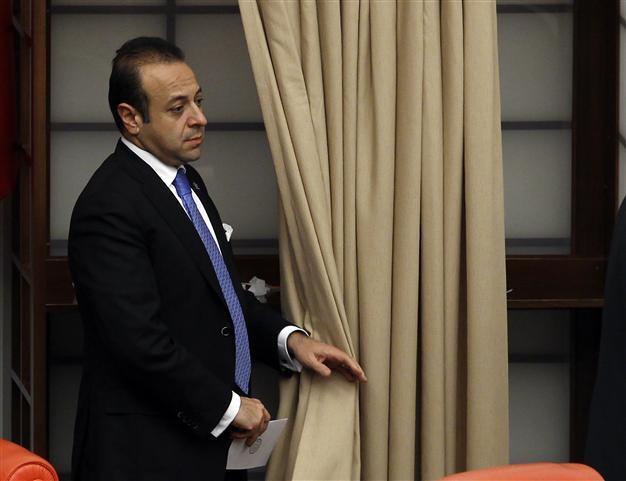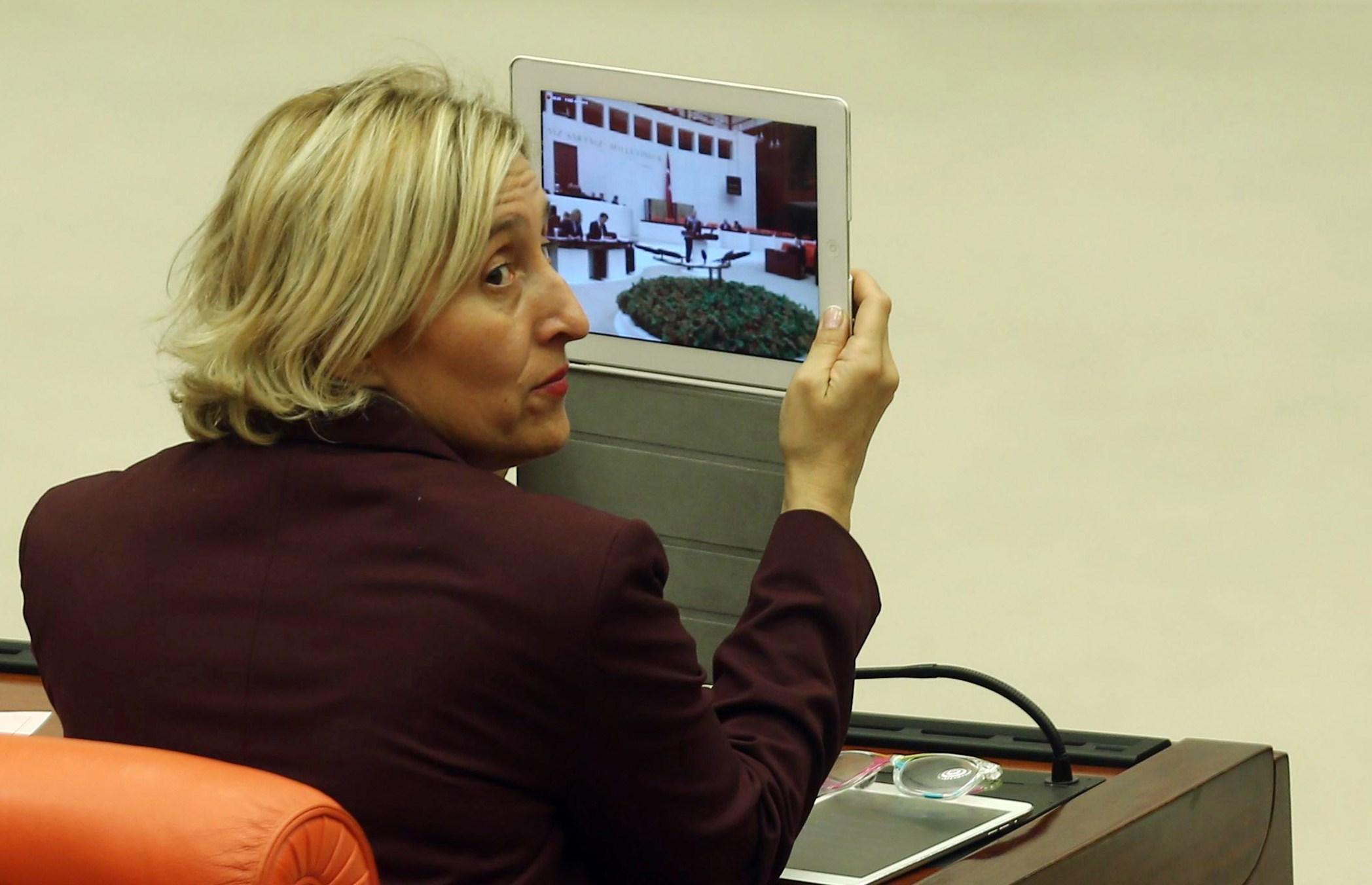Parliament approves to set up inquiry commission into graft claims with overwhelming majority
ANKARA

Former EU Minister Egemen Bağış casts his vote during a ballot at Parliament for the establishment of an inquiry commission against him and three other ex-ministers, in Ankara, May 5. AA Photo
The Turkish Parliament has approved setting up an inquiry commission into the graft allegations on four former ministers with 453 votes for the probe and nine against it after a tense session May 5 that lasted 16 hours.
The former ministers facing corruption charges have for the first time answered to the accusations against them from the Parliament’s pulpit during the critical session, which was delayed due to the recess for the March 30 local elections.
The main opposition Republican People’s Party (CHP) had filed four separate motions for an inquiry into former Economy Minister Zafer Çağlayan, former EU Minister Egemen Bağış, former Interior Minister Muammer Güler and former Urbanization and Environment Planning Minister Erdoğan Bayraktar. The ruling Justice and Development Party (AKP) filed a single motion for an inquiry into the four, which was eventually adopted after the four of the CHP’s motions were rejected.
Çağlayan, Güler and Bayraktar had resigned days after the corruption scandal broke out on Dec. 17, 2013, when the police detained their sons, as well as businessmen known to be close to Prime Minister Recep Tayyip Erdoğan. Bağış, for his part, was replaced by Erdoğan as part of a major Cabinet reshuffle on Dec. 25.
Ex-ministers deny wrongdoing
All four ex-members of the Cabinet have denied any wrongdoing, as three of them individually took the floor for a speech limited to 10 minutes.
“We are facing great slander and massive lies,” said Çağlayan, who was the first to respond to the accusations.
Touching upon claims about being bribed by the Iran-born Azeri businessman Reza Zarrab – the main suspect of the graft investigation – with a watch worth 700,000 Turkish Liras, Çağlayan assured that he had paid the entire sum himself. He also rejected claims that he performed the Umra, travelling to Mecca, with his family on Zarrab’s private plane. “These claims reveal an effort to exploit the Turkish people’s religious sensitivity,” he said.
For his part, Güler accused prosecutors and judges conducting the investigation of breaching the law by prosecuting ministers.
“Ministers cannot be considered suspects and prosecutors are not competent enough to carry out an investigation on them,” Güler said.
Bağış also slammed the investigation as a “dirty plot” against the government, assuring lawmakers in a defiant speech that none of the accused ex-ministers would hide behind their parliamentary immunity.
Bayraktar, who reportedly was unable to hold back his tears during a meeting with the AKP lawmakers early in the afternoon, choose not to make an address.
The inquiry commission will begin working in the second half of May. Its tenure will continue for four months, but as Parliament is set to enter summer recess as of July 1, it will not be able to finalize its work by that time.
The commission is also expected to give a break to its work due to upcoming presidential elections in August and restart work in October. After it finalizes its work, the secret voting on whether the four will be sent to the Supreme Council will be held at the General Assembly.
 TV blackout
TV blackout The session was also marked by a row on the absence of any live television coverage of the proceedings.
The AKP's choice of holding the graft session on May 5, Monday – the only weekday on which the Parliament’s live television channel, Meclis TV, does not broadcast – infuriated the opposition parties, triggering lengthy discussions. The session could still be viewed on the Parliament’s website, but public broadcaster TRT rejected the opposition parties’ petitions to cover the debates.
Both Nationalist Movement Party (MHP) deputy parliamentary group head Oktay Vural and CHP deputy leader Gürsel Tekin denounced the refusal of their requests to TRT as censorship. But the AKP's deputy parliamentary head Nurettin Canikli denied the allegations of censorship and said the TRT was just following the protocol signed with Parliament.
To by-pass the decision, CHP deputy Melda Onur aired her own live streaming of the parliamentary debate online on UStream.
Onur, who attracted over 70,000 viewers by broadcasting a previous session on the graft allegations held on March 19, bemoaned that parliamentary speaker Cemil Çiçek did not intervene and air the debates on national TV.
“Doesn’t the parliamentary speaker have any initiative regarding that? If he doesn’t, they should tell us who manages the Parliament,” Onur said, adding that she was prepared to stream the session for as long as the batteries in her PC tablet would allow her.
“I will charge the batteries during the recesses. The Parliament session will probably be long, so my colleagues will take turns [streaming the session] when I become tired,” she added.
Çiçek promised to meet oppositional deputies to hear their demands for the broadcast, but it did not take place as of late afternoon.

 TV blackout
TV blackout